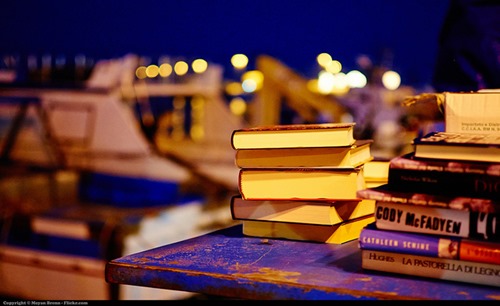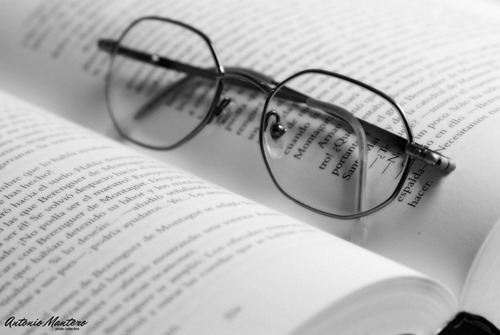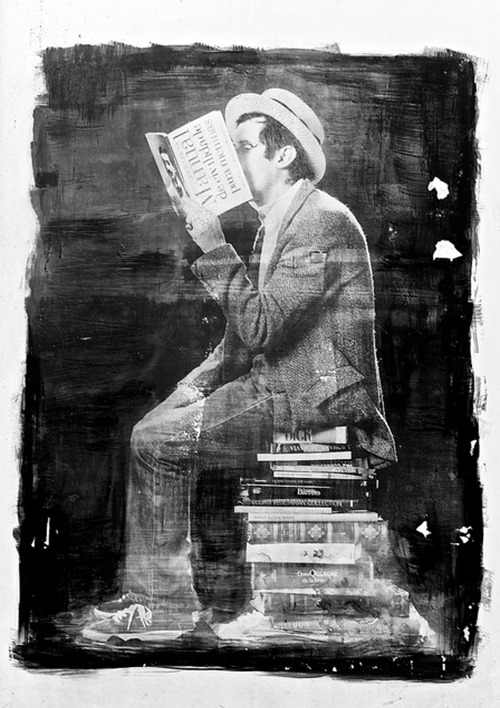What Makes a Good Reader? and What Makes a Good Read?
Last week I asked readers on Facebook if how-to-read and book reviews would be something of interest. To my surprise, the response was very enthusiastic. Therefore, I decided to start BookWorm Wednesday to share insights on the practice of reading and my own take on the wisdom of books that I savor – and devour – each week.
I dare not proclaim to be an excellent reader. Reading, very much like writing, is a skill that demands lifetime practice. But I do read quiet a bit – 4 books at the same time every 2 to 3 weeks. Furthermore, books made all my accomplishments possible as I could visit the brains of incredible thinkers, living or dead, whom I took the liberty to regard as my teachers. Not merely interesting persons who’d written something of value, but teachers. This intimate relationship is notable. Why?
All over the world, education systems are failing. And even though experts and youth are speaking up, their cry is deep swallowed by marching sound of million footsteps of freshman each year before reaching the priorities ladder of our governments – which ultimately compel earnest learners to build their own schools, and classes, and classmates, and teachers. This, fortunately, is highly convenient and affordable in our flat world.
I studied Business, but was never taught how to present myself properly in business setting. Nevertheless, after one year reading sales books at night and meeting potential clients in the morning, I was chosen to work in global sales team of AIESEC head office – being one of the very few Asians who’d ever worked in this role, let alone Southeast Asians.
I don’t think I’m self-taught genius. None is. The loudest ‘self-taught’ out there was taught, one way or another. Though, I admit to grow impatient when my formal education falls short, and proactive enough to do something about it rather than wasting time blaming ‘the system’. For me, reading is schooling, when the book is your classroom and the author your teacher. Of course, reading just one of the ways to knowledge. But it is an excellent one.
Without books, we have two options: to find a teacher in our location, or to dabble through the world with our limited understanding. The first is possible, though inconvenient if we live in isolation or poverty, and especially if the best teacher is dead. The latter – learning by doing, learning by failing – may result in life-altering realizations. However, this path is frustrating, thus discouraging for many learners at times, and – in my viewpoint – wasteful of humanity’s collective wisdom at large.
A good read is like an USB that connects our awareness to the ‘big data’ – the immense knowledge of the universe. Thus, we can begin to navigate the world with that stretched understanding, instead of groping around with our limited ‘data’. We should also aim to contribute back to the ‘big data’, thus push humanity forward, by transcend those wisdom, and by learning from new mistakes.
Therefore, acquiring knowledge through written form remains timeless. When we couple this reason with the incompetence of current education, we realize that reading is vital to solve the puzzles of our world today.
Unfortunately, as I said, reading is a complex art to master. I have seen many people fall behind their reading plan, half-finish books, treat reading as bedtime sedative drug, spend more time at the bookstore than on the reading chair, or read ‘widely’ but with the comprehension depth of a squirrel. I’ll be honest to you: I myself did all the above.
Since you’ve made it to this line, I assume that you’re at least capable of basic reading, and have keen interest in becoming a better reader – a curious mind that seeks enlarged understanding of the world in “between the lines”, and does it skillfully. If so, we can do this together.
Like any path to mastery, that of reading demands a clarity of purpose. However, the daily onslaught of written information at our disposal, whether we want it or not, infuses a great deal of disorientation in what reading is – and should be – for.
Famous philosopher, educator, and author Mortimer J. Adler in the classic guide to intelligent reading - How to Read a Book – distinguishes three reading purposes: entertainment, information, and understanding. My brother reads 9gag comics and Facebook updates for entertainment and information. My father reads online newspapers for information – to know what’s going on. My gym mates read lifestyle and fitness magazines in the changing room for both information and entertainment – to keep up with the latest trend and, I suspect, to feel worse about their bodies. Ninety percent of the time I read in order to increase my understanding of the world.
I admit that he line between information and understanding is blurry. A fact may trigger powerful realization, and an insightful read can as well entertain. Also I don’t mean to condemn the reading of good entertaining books. I’m saying that a good reader should ultimately aim for increased understanding through written materials.
Reading for information is like narrating the fact of the event, Adler says, but reading for understanding is knowing what it is all about: why it happens, how it connects to other events, how it is different or similar to the past, how likely it will occur in the future, what’s the author’s viewpoint about it, why he views it that way, to what degree you agree with him, why? and so on.
An elementary or average reader keeps knowledge between his teeth, recites it, and splits it out. A skillful reader chews, swallows, digests, absorbs. And thus, able to solve his problems with that piece of knowledge – once foreign, now infused in his mind.
The cold fact is: most materials cannot be read for understanding. The sad fact is: we are bombarded by them: advertisements, pop magazines, rude comedy comics,social media updates, daily news. Most of them do no favor in our understanding of the world. You can be informed about the Ebola outbreak in Africa. The first time you heard about it, it is quite an awareness. But if you obsessively devour this news every day on the press – unless you are running donation campaign for countries suffered from Ebola - that fact in itself does not elevate your comprehension, it does so only to your blood pressure. Plus, you knowing about it and fevering over it do no help to the world’s fight with this disease.
Here, I thought of Adler’s sigh: “We do not have to know everything about something in order to understand it; too many facts are often as much of an obstacle to understanding as too few. There is a sense in which we moderns are inundated with facts to the detriment of understanding.”
Therefore, a good reader must identify good books and essays; and he makes time for those gems.
How to make time? By putting the right limits on how much he spend on entertaining and informational materials.
How to identify good books and essays? By reading thorough materials on the desired topic – which, in most cases, results in longer form reading: books, thesis, well-written essays and thoughtful articles. I admire Adler for encapsulating the answer with such eloquence:

There is the book; and here is your mind. As you go through the pages, either you understand perfectly everything the author has to say or you do not. If you do, you may have gained information, but you could not have increased your understanding. If the book is completely intelligible to you from start to finish, then the author and you are as two minds in the same mold. The symbols on, the page merely express the common understanding you had before you met.
Let us take our second alternative. You do not understand the book perfectly. Let us even assume-what unhappily is not always true-that you understand enough to know that you do not understand it all. You know the book has more to say than you understand and hence that it contains something that can increase your understanding.
Sometimes people suggest me to write shorter articles because many people aren’t patient enough for long read. This makes me wary. I don’t intend to be lengthy, I aim for thoroughness – which, with my humble command of the English language, results in longer form.
I don’t want to send message in my blog. If I do, I’d Tweet: “Read more and better”. But that’s neither inspiring nor insightful. I want to take the readers’ hands, your hand, and walk you through my world carefully, and slowly, and with so much truth and love that when we say goodbye you can come back to your world with an expanded way to see it.
The cult of speed in our modern society demands shortcut to everything. However, what’s the use of treading the surface, while the treasure is deep underwater, and true understanding requires us to hold our breathe and take a dive ?

Comeback next week on BookWorm Wednesday for more wisdom, and practical advises in the art of reading.
Couple this article with A Good Read – The Importance in Finding Teachers and Mental Renewal in Books, or expand your read to What’s an Education Worth Fighting For?
- - -
It takes many hours of “heart work” to bring you Life Written. Let me know that I’m doing something right by:





